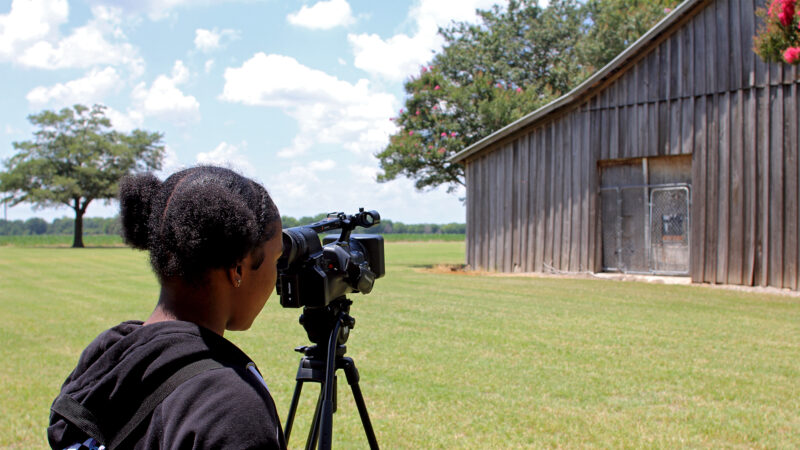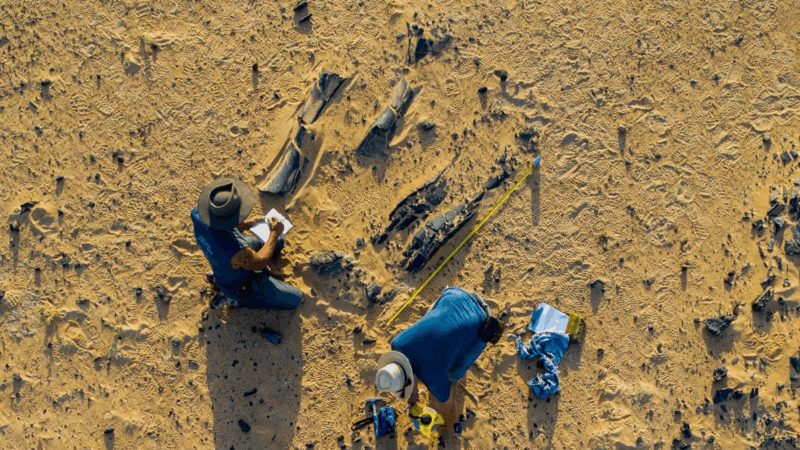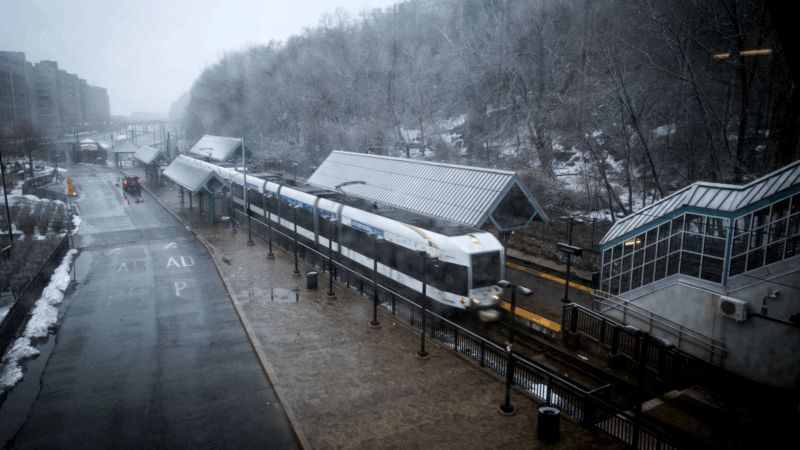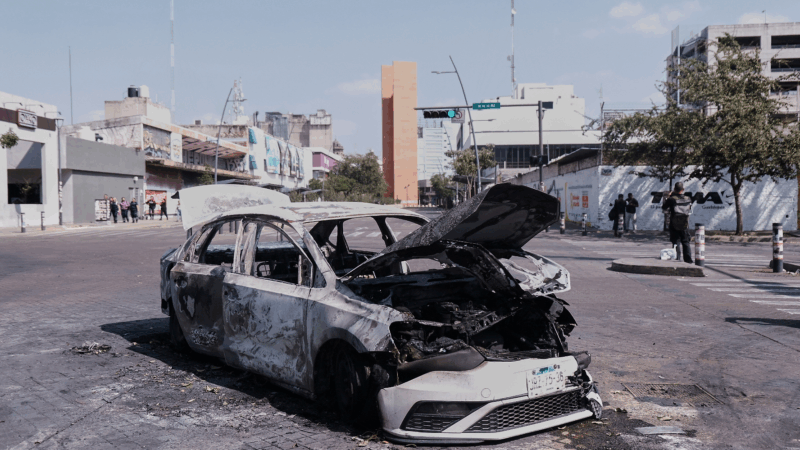In Mississippi, student filmmakers tell Emmett Till’s story through their lenses
Akeelah Phillips films the seed barn during the Mississippi Delta Film Academy’s trip to Drew, Mississippi, on June 21, 2024. The seed barn was the location where Emmett Till was tortured before being murdered in 1955.
Students pile out of a bus in Drew, Mississippi, with notepads and cameras tucked under their arms. This stop, on a hot Friday afternoon in June, is the third of many throughout the quiet farming region.
One student, Amari Smith, listens intently to her instructor as she carries a tripod to the edge of the nearby pond. She angles her camera at the surface, at cypress trees covered in soft green algae, and presses the red circle on the side. As she records, a drone circles overhead, sweeping across the expansive property, where Emmett Till was murdered nearly 70 years ago.
The shoot is part of a Mississippi Delta Film Academy field trip. For two weeks this summer, two dozen students traveled from Sumner to Drew and Mound Bayou, visiting historic locations and museums of Black Southern history along the route that Till took the day of his murder. The goal is for the students to create a documentary that continues to tell his story.
At a special screening, the students debuted their documentary in Sumner on June 29. They also shared what the project taught them about Civil Rights and how the work affected them.
The documentary and the process of putting it together is part of the Emmett Till Interpretive Center‘s mission to educate people on Till, which students like Myiesha Wright, who’s worked with the center for three summers in a row, say deepened her understanding of her hometown.
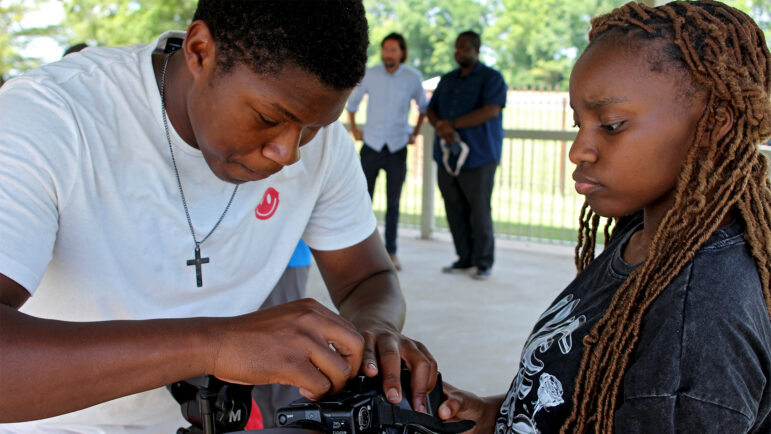
“Sumner has like a lot of history that don’t nobody really know about,” Wright said. “So [the project] really helped me realize that.”
Wright spends her day helping some of the younger students, but she also takes time to listen intently as her cohort parses through some of the tougher topics as the students put their newly learned skills to the test. They’re using digital cameras, GoPros, drones and even their cell phones to capture the juxtaposition of it all:
The lush, green ivy swallows up what’s left of Bryant’s Grocery, where Till was accused of whistling at a white woman. The soft pink crepe myrtle petals cascade around the faded seed barn, where the 14-year-old was brutally beaten and shot by white men. The cooling shade near the Tallahatchie River at Graball Landing, where Till’s body was pulled from the water. And the Tallahatchie County Courthouse, quiet and sterile, where an all-white jury ruled that Till’s murderers were innocent.
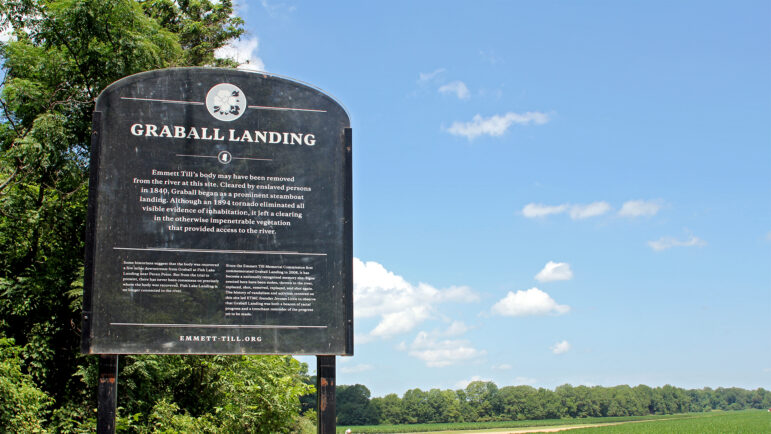
Leading the group during this field trip is Jessie Jaynes-Diming, the special projects coordinator for the Emmett Till Interpretive Center. She is one of the initial commissioners who worked to have the courthouse restored to how it appeared during the trial in 1955.
After she moved to the South, well into adulthood, she realized there was so much about violence against Black people that was kept secret.
“I grew up in Chicago, and we were always on top of recognizing the history and the injustice, but here in this community, you didn’t talk about it. ‘Shut up, boy! We don’t talk about that,’” Jaynes-Diming said.
For her, this project allows her to share what emboldened her to do this kind of Civil Rights education and keep the truth alive when others ignore it.
“Whenever I come, I can imagine that mother’s feeling and the loss of life and her courage,” she said. “To be able to touch these places and stand in these spaces, and to retell these stories and to recognize these stories, to me, is the power of the next generations.”
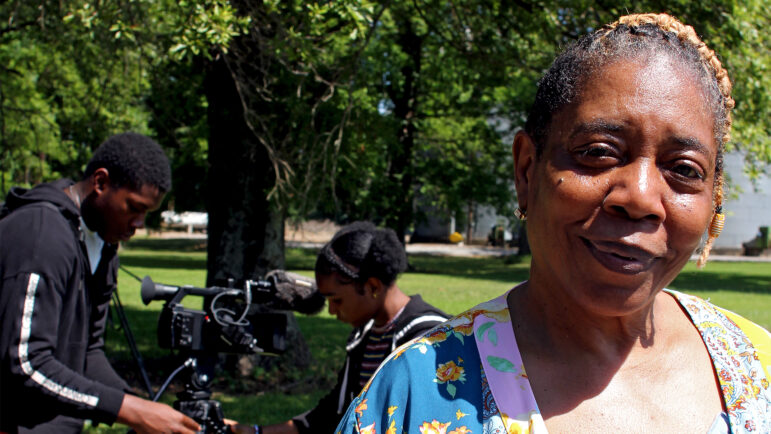
Till’s murder, and his mother Mamie Till-Mobley’s defiant act of bravery to have an open casket funeral, changed the nation in 1955. Last summer, President Biden signed a federal declaration that created the Emmett Till and Mamie Till-Mobley National Monument in the Delta and Chicago — where Till was born and raised. Jaynes-Diming was integral in efforts for the Delta region to receive the National Park Designation.
The designation has been years in the making, and now, with the aid of the National Park Foundation, the Emmett Till Interpretive Center can deepen its film project. The National Park Foundation granted $3 million toward purchasing the Tallahatchie County Courthouse, to become a national park site. The courthouse also is a pivotal location for the students to work on their films.
“It’s not just for parks like Yosemite and Yellowstone, where you’re hiking or camping, but it’s also for places like Emmett Till or where people want to go and learn more about the history,” Will Shafroth, president and CEO of the National Park Foundation, said.
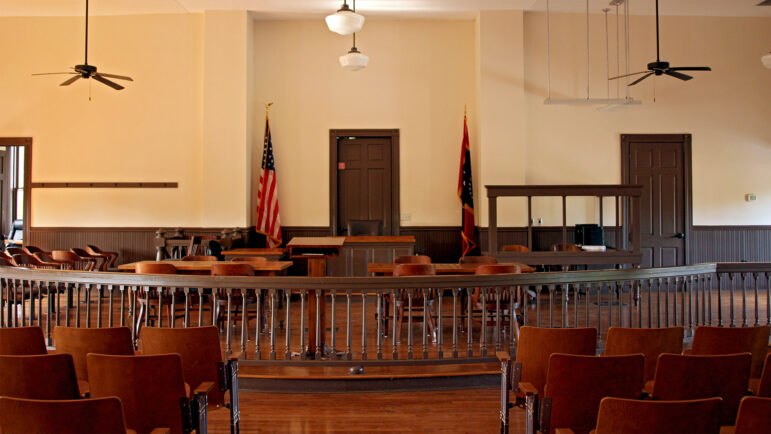
The National Park Foundation’s ParkVentures has invested millions into organizations that aim to diversify and make the outdoors more equitable for people historically excluded. The Mississippi Delta Film Academy is just one of 63 projects that the ParkVentures program supported in 2024.
“For people who have an inclination to go hiking in the parks, that’s great,” Shafroth said. “But for people who want to learn about the history and their state or their community, this is another way of doing that. It’s kind of a cool, almost unexpected manifestation of our mission.”
Pablo Correa is an educator who helped start the Mississippi Delta Film Project nearly a decade ago. He filmed shorts for the Interpretive Center and traveled across the country photographing key places of history for the Till Memory Project. He said that he uses filmmaking to teach students how to discern between what matters most to them and what the media wants them to care about.
“We’re finding that a lot of our stories are not represented,” Correa said. “Often, we tell our students that, if this story is important to you, it may never get told unless you tell that story yourself.”
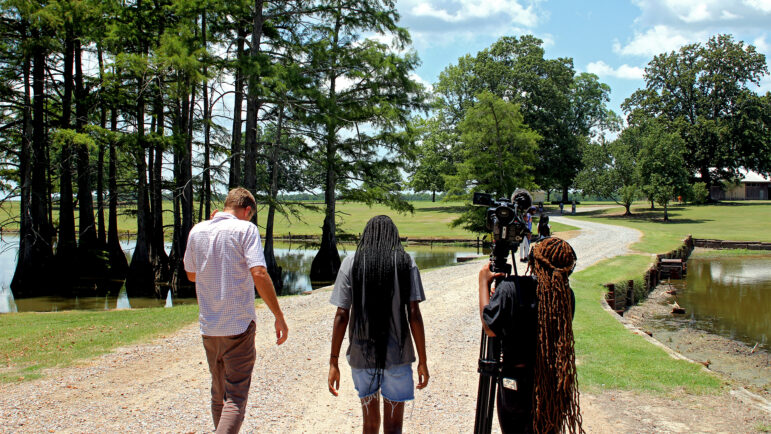
Correa said he hopes to get young people to understand that they can shape their future simply by paying attention to what sparks passion inside of them — now, sooner than later.
“We look forward to seeing some of their work and seeing some of the progress that they make throughout life,” he said. “[We] hope that they don’t make the same mistakes that a lot of us have made in growing up and waiting too long to get started, and so we are giving them the confidence and the experience to be successful.”
This story was produced by the Gulf States Newsroom, a collaboration between Mississippi Public Broadcasting, WBHM in Alabama, WWNO and WRKF in Louisiana and NPR.
Newly discovered dinosaur species was a fish-eater with a huge horn
The semi-aquatic dinosaur, Spinosaurus mirabilis, was discovered by an international team of scientists working in Niger.
Reporters’ notebook: The Olympics closing ceremony is way more fun than you’d think
Olympics opening ceremonies tend to get more love than their closing counterparts. But a pair of NPR reporters who watched both in Italy left with a newfound appreciation for the latter.
Northeast readies for a major winter storm, with blizzard warnings in effect
New Jersey through Massachusetts could see 2 feet of snow. New York City's mayor said the city had not "seen a storm like this in a decade."
Mexican army kills leader of Jalisco New Generation Cartel, official says
The Mexican army killed the leader of the powerful Jalisco New Generation Cartel, Nemesio Rubén Oseguera Cervantes, "El Mencho," in an operation Sunday, a federal official said.
Ukraine’s combat amputees cling to hope as a weapon of war
Along with a growing number of war-wounded amputees, Mykhailo Varvarych and Iryna Botvynska are navigating an altered destiny after Varvarych lost both his legs during the Russian invasion.
University students hold new protests in Iran around memorials for those killed
Iran's state news agency said students protested at five universities in the capital, Tehran, and one in the city of Mashhad on Sunday.

